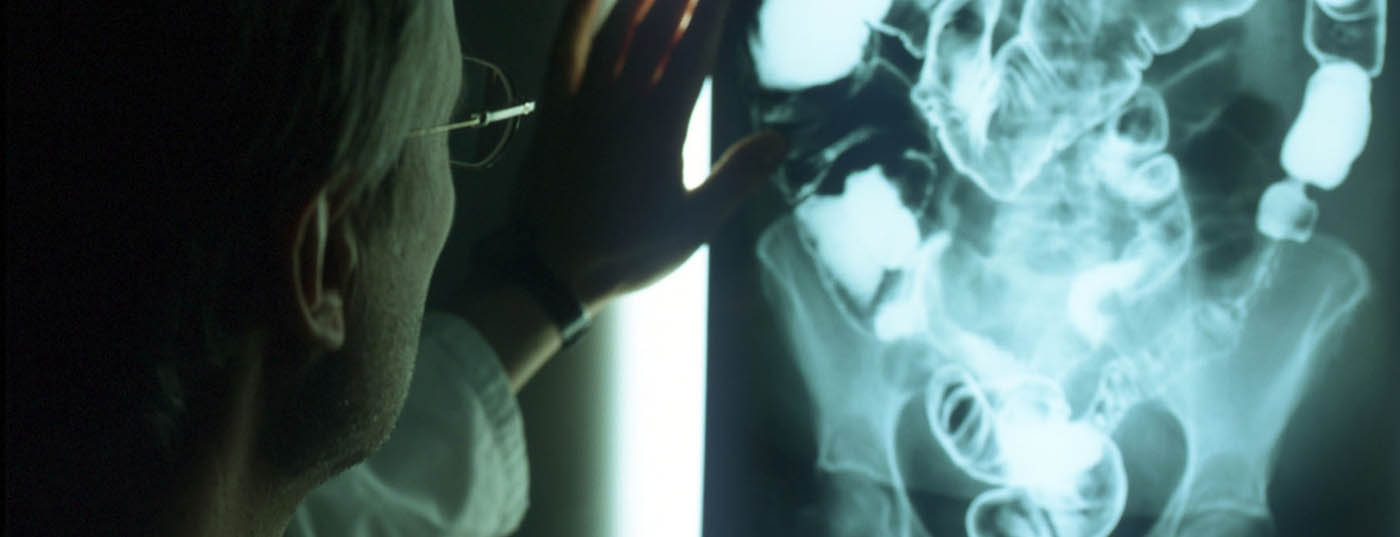According to preliminary results of a large phase III trial presented at this year’s ASCO congress, bevacizumab and cetuximab (combined with FOLFOX or FOLFIRI) show similar efficacy in terms of overall survival in patients with metastatic colorectal cancer without KRAS mutation. However, future specification of data regarding all-RAS status is needed.
The study in question [1] began back in 2004 and is named CALGB/SWOG-80405. It included previously untreated patients with metastatic colorectal cancer (mCRC) who had not been selected for their KRAS status at baseline and were also eligible to receive a combination of bevacizumab and cetuximab. However, we later changed the design completely to patients with KRAS wild type (exon 2, codon 12 and 13) and the above combination arm was closed. An initial stratification phase, in which physicians had to choose between the two chemotherapy regimens FOLFIRI and FOLFOX, was followed by randomization to bevacizumab (5 mg/kg every two weeks plus chemotherapy, n=559) or cetuximab (once 400 mg/m2, then once 250 mg/m2 weekly, plus chemotherapy, n=578). Treatment was continued until progression, death, untenable toxicities, or curative surgery. “Treatment vacations” of four weeks were allowed. Between November 2005 and March 2012, a total of 1137 patients were included (333 from the pre-correction phase and 804 from the post-correction phase). The median age of patients was 59 years and they were predominantly (61%) male.
Important progress achieved
“Overall survival reached a new record: whereas just over ten years ago a median overall survival of just over 21 months was observed in this setting, we now almost crack the 30 mark (p=0.34) with both bevacizumab and chemotherapy (29.04 months) and cetuximab and chemotherapy (29.93 months). Progression-free survival is 10.84 months with the bevacizumab combination and 10.45 months with the cetuximab combination (p=0.55),” said Alan P. Venook, MD, San Francisco.
But how did the two chemotherapy regimens differ?
- FOLFOX + cetuximab resulted in a median overall survival of 30.1 months.
- FOLFOX + bevacizumab resulted in a median overall survival of 26.9 months.
Thus, there was a trend toward better efficacy of FOLFOX + cetuximab compared with FOLFOX + bevacizumab. However, the difference between the two regimens was not statistically significant (p=0.09). This was also true for the combination with FOLFIRI (p-value here: 0.28), although the lower number of participants in the FOLFIRI groups (26.6% of all patients vs. 73.4% FOLFOX) does not allow any firm conclusions, according to Venook.
- FOLFIRI + cetuximab resulted in a median overall survival of 28.9 months.
- FOLFIRI + bevacizumab resulted in a median overall survival of 33.4 months.
According to the study authors, the equivalence of the two arms is less noteworthy than the substantially prolonged survival in general, which sets an entirely new and, more importantly, high standard for further studies in mCRC.
No conclusive statement possible yet
124 of all patients (10.9%) were considered disease-free after surgery and study treatment and achieved survival rates greater than 5.5 years. “So there seem to be a number of patients with mCRC who are exceptionally treatable. That’s remarkable news,” he said. “However, the current overall survival data should be considered preliminary in any case, as this initial analysis on the primary endpoint of overall survival was performed only in patients with KRAS wild-type (exon 2, codon 12 and 13).” The final conclusion of the analysis cannot be completed until the data on the so-called “all-RAS-wildtype” population have been evaluated, i.e., an extended RAS analysis of these tumors (along with KRAS exon 2) has taken place. Accordingly, patient characteristics need to be further differentiated and examined. Then new differences between the groups could also become apparent.
Currently, it is known that rarer mutations in exon 3 and 4 of the KRAS gene and mutations in exon 2, 3, and 4 in the NRAS gene may cause tumors to be resistant to anti-EGFR drugs. RAS mutations overall have been identified in several studies as negative predictive biomarkers of anti-EGFR therapy in mCRC. Thus, the data now available and those to come must be interpreted in the context of these recent analyses (FIRE-3, PEAK, OPUS, PRIME, CRYSTAL).
Accurate evaluation of patients for anti-EGFR therapy is central in all cases and testing for K-RAS as well as N-RAS mutations is essential. In Switzerland, cetuximab is approved for the treatment of patients with EGFR-expressing mCRC with RAS wild-type in combination with FOLFIRI or FOLFOX or as monotherapy when oxaliplatin- and irinotecan-based therapy has failed or irinotecan intolerance is present.
“Furthermore, data on response rates or duration of therapy are still pending. All these analyses have yet to show which patients will benefit most from each therapy. From the preliminary data, we know that there are no major differences in terms of quality of life,” the expert says.
No new adverse events were found: The most common grade-3 (or higher) toxicities with bevacizumab were hypertension (7%) and gastrointestinal events (2%). For cetuximab, diarrhea (11%) and an acne-like rash (7%) were observed most frequently. Only 29.6% of all patients had to discontinue therapy due to progression.
Source: 50th Annual Meeting of the American Society of Clinical Oncology (ASCO), May 30-June 3, 2014, Chicago.
Literature:
- Venook AP, et al: CALGB/SWOG 80405: Phase III trial of irinotecan/5-FU/leucovorin (FOLFIRI) or oxaliplatin/5-FU/leucovorin (mFOLFOX6) with bevacizumab (BV) or cetuximab (CET) for patients (pts) with KRAS wild-type (wt) untreated metastatic adenocarcinoma of the colon or rectum (MCRC). J Clin Oncol 2014 ; 32: 5s (suppl; abstr LBA3).
InFo Oncology & Hematology 2014; 2(6): 24-24.











